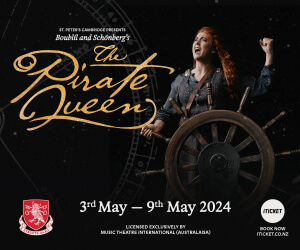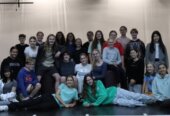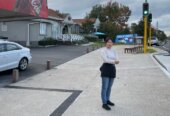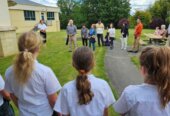
Gloria Taituha, Jaqueline McRae-Tarei and Rose Te Ratana, work on the installation of the collaborative piece ‘Whakamata’ at Apakura, Te Awamutu.
By Stephen Ward
Three Te Wānanga o Aotearoa staff have been awarded doctorates in raranga – traditional Māori weaving – after joined-up study through Auckland University of Technology’s Te Ipukarea Research Centre.
It’s seen as a visible demonstration of the mana, academic expertise and detailed knowledge of the three wāhine involved. Their unique joint project – covering raranga past, present and future – carried on as they each individually worked towards their PhDs through completing research and creating raranga.
The kairaranga (weavers) awarded doctorates and who will graduate in December are Gloria Taituha, a Te Awamutu-based Poururuku, who studied the period from 1860 to 1970, Jacqueline McRae-Tarei, a Kaiwhakahaere Ako in Kawerau, who looked at historical raranga up until 1860 and Rose Te Ratana, a kaiako from Rotorua, who researched raranga from 1970 and into the future.
“We’re incredibly proud of what we’ve achieved together and will look to use what we’ve learned in helping to advance the understanding and practice of raranga around Aotearoa,” the three said in a media release by Te Wananga o Aotearoa.
“Raranga isn’t just decorative – it was essential to the successful migration of Māori to Aotearoa and their life here amid a colder climate. So, we acknowledge our tīpuna kairaranga from the distant past as well as more modern and contemporary practitioners who have carried the practice forward.”
They also acknowledged the very supportive role of AUT in allowing a collaborative approach to PhD research. To AUT’s knowledge, this is the first time internationally that there has been a joint PhD project in raranga and there are only two previous raranga doctorates in Aotearoa.
“The work the kairaranga have done demonstrates clearly how raranga is a very valid discipline of academic study,” says AUT’s Professor Tania Ka’ai, who supervised the PhDs.
“Their achievement also recognises not just the art form but tohunga raranga (weaving experts) as well, and the creative practice of the kairaranga.”
The overarching kaupapa of the joint PhDs project was the role of kairaranga – who were essential in the effective functioning of Māori society – from the past to the future.
“Working this way created a bigger picture and looked across time,” says Jacqueline McRae-Tarei.
Gloria Taituha said the idea of working collaboratively on the PhDs reflected the Wananga’s mahitahi (working as one) approach on projects, as well as the approach used by Professor Ka’ai in supervising.”
“The idea was to have a joint project where each individual component could be individually assessed and stand on its own, while there would be an overarching narrative developed and synergies available through doing a collaborative project.”
Rose Te Ratana says working together in a collaborative way has presented its challenges but has been valuable. “It has pushed us to the limit.”
The kairaranga say their research has created an important body of work about the practice of raranga across time and its path into the future. They feel this will help others understand and develop their raranga practice in a way that suits them.
The trio say that raranga has a special wairua (spirit) and artistic qualities of its own, and that raranga creates strong connections to tīpuna (ancestors) who passed on the art to current generations.
“That’s something many kairaranga talk about, that is how raranga creates links between past and present,” says Jacqueline.
Stephen Ward is a communications advisor at Te Wananga o Aotearoa.








